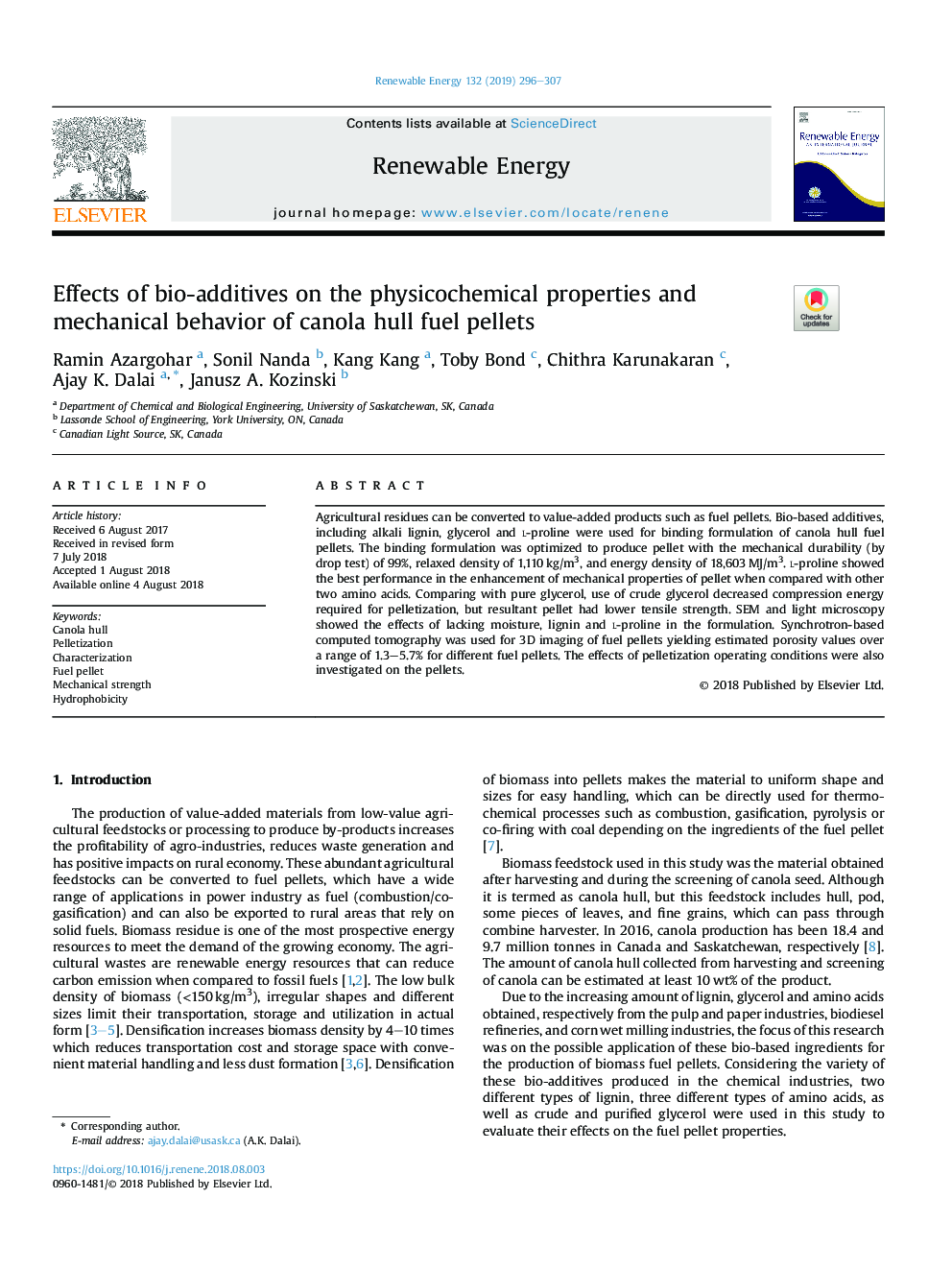| Article ID | Journal | Published Year | Pages | File Type |
|---|---|---|---|---|
| 6763572 | Renewable Energy | 2019 | 12 Pages |
Abstract
Agricultural residues can be converted to value-added products such as fuel pellets. Bio-based additives, including alkali lignin, glycerol and l-proline were used for binding formulation of canola hull fuel pellets. The binding formulation was optimized to produce pellet with the mechanical durability (by drop test) of 99%, relaxed density of 1,110â¯kg/m3, and energy density of 18,603â¯MJ/m3. l-proline showed the best performance in the enhancement of mechanical properties of pellet when compared with other two amino acids. Comparing with pure glycerol, use of crude glycerol decreased compression energy required for pelletization, but resultant pellet had lower tensile strength. SEM and light microscopy showed the effects of lacking moisture, lignin and l-proline in the formulation. Synchrotron-based computed tomography was used for 3D imaging of fuel pellets yielding estimated porosity values over a range of 1.3-5.7% for different fuel pellets. The effects of pelletization operating conditions were also investigated on the pellets.
Related Topics
Physical Sciences and Engineering
Energy
Renewable Energy, Sustainability and the Environment
Authors
Ramin Azargohar, Sonil Nanda, Kang Kang, Toby Bond, Chithra Karunakaran, Ajay K. Dalai, Janusz A. Kozinski,
